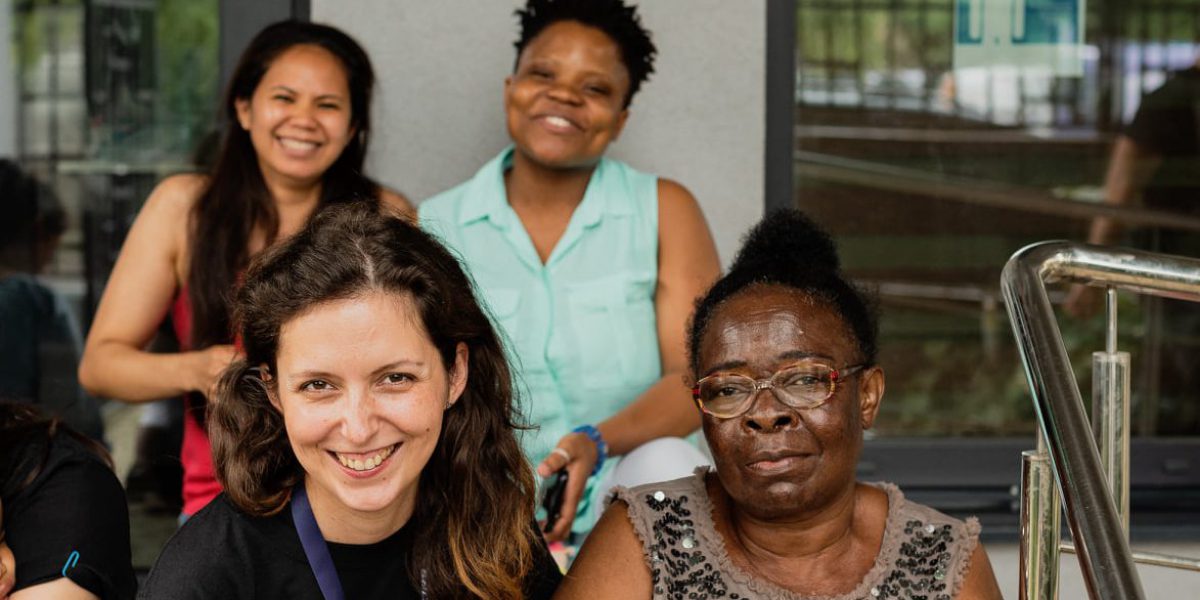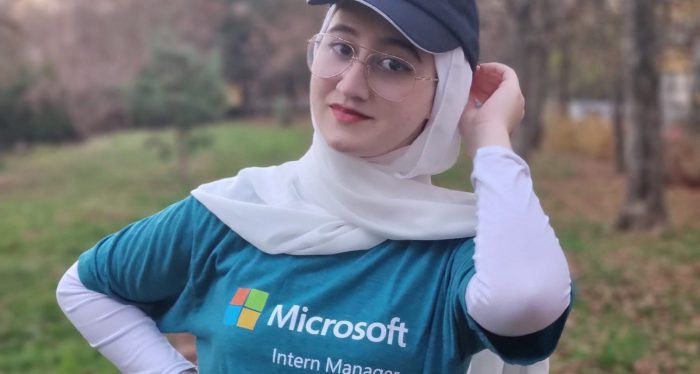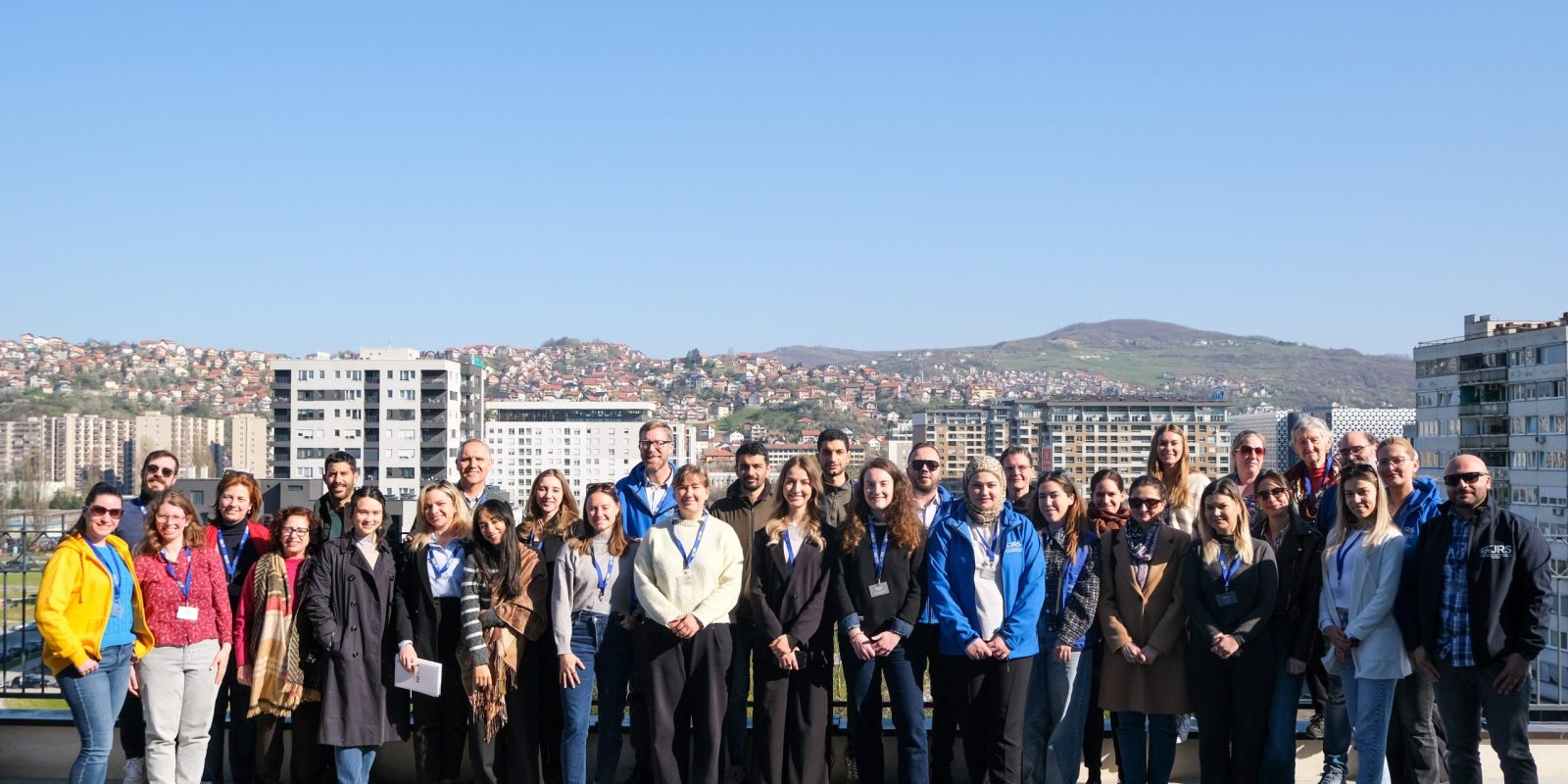More than a victim: women who fight back against violence
26 November 2021

This week we celebrate the Day for the Elimination of Violence against Women, where we campaign to put a stop to all gender-based violence around the world.
In our work with refugees, all too often we meet women who have been victims of violence. Displaced women flee violence in their country of origin: many have been victims of physical and sexual abuse, including female genital mutilation, a practice which remains common in many places.
Every day we meet women who, despite discrimination, never stop fighting for their independence. Reception services that offer protection, psychological support and education make the difference. With this support, women can regain confidence, confront their difficulties and ultimately create a better life for themselves.
These are the stories of Ugbaad and Rahaf.
“In Somalia, they cut me 2 times. The first time I was a little girl, no more than 7 years old and I only remember the injection. After delivering my baby, they mutilated me again. I swear to God I did not give my consent, the doctor and my partner decided it when I was unconscious.”
I met Ugbaad. 3 years ago in a refugee camp in Bucharest. Although she was concerned about starting a new life in a different country, I was impressed by her strong drive to make a living so she could reunite with her daughter, who was still in Somalia. Even though only a few months had passed since her arrival in Romania, she was already working hard, raising money to pay for her daughter’s plane ticket.
“My only goal back then was to quickly bring my daughter to Romania, before they mutilated her too. I was terrified during the family reunification process, realising she was in danger.”
After one year of changing jobs over and over again and of navigating a complicated bureaucratic mechanism, Ugbaad managed to reconnect with her daughter and bring her to safety. But the challenges did not stop. From securing a well-paid job, to handling the payment of rent and housing utilities and obtaining a place in daycare for her daughter, difficulties piled up. Ugbaad stubbornly overcame all the obstacles she encountered, simultaneously grateful for the opportunity to raise her daughter in a safe country, away from violence. On top of this, she became a pillar and inspiration to the community of Bucharest’s Somali single women, helping them by providing shelter, food and kindness when most needed. Accessing shelter and employment in host countries is challenging to all refugee women and particularly to sex and gender based violence survivors. Aside from language barriers, poor education and psychological trauma, women also carry the burden of traditional norms from their countries of origin.
“In Somalia, boys are sent to school, girls are sent to clean. Women in my family do not know how to read or write. I am forever grateful to my mother! She supported me going to school and enrolling in university. Because of her, I am independent now.”

Rahaf is a smart 20 year old refugee in Bucharest. She fled Syria together with her family after the outbreak of war and the only thing she remembers is the feeling of fear: fear of bombs, fear of talking freely, fear of being kidnapped, fear of her brother being drafted into the army, fear of being forced to marry someone, fear of being stopped from going to school. Her dream is to become a campaigner for Muslim women’s rights and she loves to code.
“After turning 15, most girls in Syria are forced into marriage and they do not go to school anymore. How can you raise children if you are a child yourself? I was lucky because women in my family were educated and I was always encouraged to study and to become independent from men.”
Rahaf was one of the graduates of the gender-responsive web development mentorship programme piloted by JRS Romania in 2021 with the scope of increasing refugee women’s employability during COVID 19 pandemic.
“When I told them I like programming and that I am thinking of enrolling in university, they told me computer science is not for girls. Even my family was concerned, advising me to choose a major more suited for women. But I was stubborn because I knew this is what I love to do.”
The online programme has focused on teaching HTML/CSS basics; technical knowledge and critical thinking development; website styling with fonts, colors and shapes; introduction to Javascript. After graduating from the programme, Rahaf decided she wants to continue studying web development and she enrolled at the Romanian American University of Bucharest.

